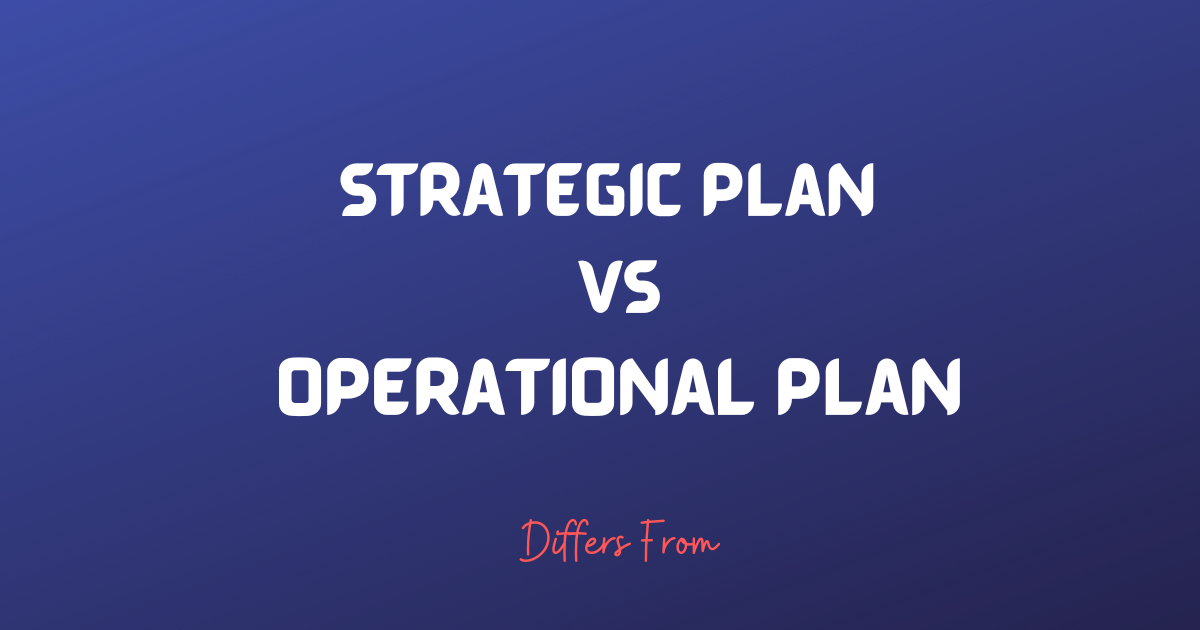What is Strategic Planning?
Strategic planning is developing and maintaining a plan to achieve one or more desired outcomes. The desired outcome could be anything from increasing profits to improving customer satisfaction. Regardless of the goal, strategic planning is essential to any organization’s success.
The first step in the strategic planning process is to establish objectives. These objectives should be specific, measurable, achievable, relevant, and time-bound. Once you have your objectives, you can start developing strategies to achieve them.
A good strategy will consider the organization’s strengths and weaknesses and its current environment. It should also be tailored to fit the organization’s unique culture and values. Finally, once a strategy is developed, it needs to be implemented and monitored to ensure it achieves its intended results.
What are the steps in the process of strategic planning?
Strategic planning involves developing a plan to help an organization achieve its goals. There are several steps in the process, including:
- Understand the need for a strategic plan.
- Set goals.
- Develop assumptions or premises.
- Research different ways to achieve objectives.
- Choose your Plan of action.
- Develop a supporting plan.
- Implement the Strategic Plan.
Benefits of Strategic Planning?
Strategic planning is one of the most important steps a business can take to ensure success. By taking the time to develop a plan, a company can identify its goals and objectives and create a roadmap for how to achieve them. The benefits of strategic planning are numerous and include:
1. Increased efficiency – When a business has a plan in place, it’s easier to make decisions and allocate resources in the most effective way. This leads to improved efficiency and reduced waste.
2. Greater focus – A well-defined plan helps employees stay focused on the tasks and align with the company’s overall goals.
3. Enhanced decision-making – A plan allows business leaders to make informed decisions based on data rather than assumptions. This leads to better outcomes for the company.
4. Improved communication – A strategic plan can provide a clear and concise picture of the company’s goals and how those goals will be met. This helps people to communicate in a way that is more effective and efficient.
What Makes Strategic Planning Successful
Why do some strategic planning efforts result in better outcomes than others? What makes the difference between success and failure?
Many factors can contribute to the success or failure of strategic planning. However, there are a few key ingredients that are essential for success:
- A clear vision statement. This statement should be easy to understand and inspire employees to buy into the company’s goals.
- A well-defined mission statement. This statement should explain what the company does and how it intends to do it.
- A set of measurable goals. These goals should be specific, attainable, and relevant to the company’s mission.
- A realistic timeline for achieving targeted goals.
- The company must have the resources necessary to achieve its objectives.
Without these basic elements, strategic planning is likely to fail.
When Should Strategic Planning Be Done?
There is no one right answer to the question of when strategic planning should be done. The answer depends on the specific needs of the organization and on the circumstances in which it finds itself. However, some general guidelines can help organizations make this decision.
One factor to consider is how often the organization’s environment changes. If the environment is relatively stable, it may be possible to delay strategic planning until later. However, suppose the environment is constantly changing. In that case, it may be necessary to do strategic planning more often to keep up with the changes.
Another factor to consider is how well-defined the organization’s mission and goals are. Suppose the mission and goals are clearly defined. In that case, it may be possible to delay strategic planning until later.
Where Do Strategic Plans Go Wrong?
There are many reasons why a strategic plan can go wrong. One reason is that the Plan may be unrealistic or not achievable. The goals may be too ambitious, or the steps needed to achieve them may be too difficult. Another reason is that the Plan may not be well-communicated. The people who need to know the Plan and their role in it may not have a clear understanding of it, which can lead to confusion and frustration. A third reason is that the Plan may not be updated as conditions change. The goals and strategies may become irrelevant or no longer applicable as new information or the environment changes. Finally, the Plan may not be properly implemented. The steps outlined in the Plan may not be followed correctly, or they may not be executed promptly. This can lead to missed opportunities and failure to meet objectives.
What is operational planning?
Operational planning is the process of designing, implementing, and monitoring an organization’s operations to achieve its goals. It involves developing a plan for how the organization will operate and ensuring that everyone involved knows their role and responsibilities. Operational planning should be updated regularly to reflect organizational goals or circumstances changes.
Operational planning is a critical process for businesses of all sizes. Operational planning aims to create a roadmap that will help the organization achieve its strategic objectives. There are several key steps involved in operational planning, including:
1. Defining the business’s mission and vision
2. Developing goals and objectives
3. Creating a strategy to achieve those goals
4. Developing a detailed action plan
Five steps to making an operational plan in business
An operational plan is a document that outlines how a business will achieve its goals and objectives. It can be used for short-term or long-term planning and should be tailored to the company’s specific needs. There are five steps to creating an effective operational plan:
1. Define your goals and objectives. What do you want your business to achieve? Be specific, and make sure your goals are measurable.
2. Assess your current capabilities. How can you best utilize your current resources to reach your goals?
3. Create a detailed action plan. This should include timelines, responsibilities, and budget information.
4. Implement the Plan and track progress. Make sure you have systems to measure results and make necessary adjustments.
5. Reevaluate regularly and make changes as needed.
Types of the operational Plan
There are three operational plans- the single Plan, the phased Plan, and the ongoing Plan.
The Single Plan
The single Plan is created for a specific event or situation and has a definite beginning and end. An example of a single plan is the movie “Jaws.” The film’s first scene establishes the shark as an imminent danger to humans. The next scene in the movie has the mayor of Amity Island ordering that all boats be removed from near the beach.
The Phased Plan
The phased Plan is implemented in stages, each consisting of one or more steps. The phased Plan is created based on a series of events that occur over time. It is a series of plans that are grouped by timing, not necessarily by geography.
The ongoing Plan
The ongoing Plan is updated regularly to reflect changes in the business environment or the organization’s goals.
Benefits of the operational Plan
In business, an operational plan is a document that outlines the specific actions that need to be taken to achieve desired goals. The benefits of having an operational plan are numerous:
- It can help ensure that everyone in the company is on the same page concerning what needs to be done and when. This can help minimize confusion and reduce the chances of overlooked important tasks.
- A plan can help increase efficiency and optimize resources. By taking the time to carefully map out how each step of a project will be carried out, businesses can minimize wasted time and effort.
- A well-crafted operational plan can also be useful for measuring progress and overall success.
Strategic Plan vs. Operational Plan (Bullet point)
Strategic Plan vs. Operational Plan: Meaning
A business’s strategic Plan and Operational Plan are two very different things. Still, both are important for the success of a company. The Strategic Plan is a high-level overview of a company’s goals and how it plans to achieve them. In contrast, the operational Plan is more detailed and outlines how each department will achieve its specific objectives. Unfortunately, many small businesses make the mistake of thinking that their strategic Plan is also their operational Plan, which can lead to problems down the road. Therefore, it’s important to remember that the two plans serve different purposes and should be treated.
Strategic Plan vs. Operational Plan: Time Frame
A strategic plan is a plan that lays out a company’s long-term objectives and strategies. It includes goals, targets, and measures of success. A typical strategic plan lasts three to five years and is updated every two to three years. Operational planning, in contrast, is a shorter-term planning process that focuses on how tasks will be completed shortly. It often uses actual data from past operations to help make decisions about what needs to be done next.
Strategic Plan vs. Operational Plan: Who Performed?
Usually, the top management of an organization is involved in strategic planning. On the other hand, mid-level management is associated with crafting operational planning. Top management usually sets the vision in strategic planning while mid to lower-level managers prepare detailed plans. In operational planning, middle managers make changes per their respective department’s plans.
Strategic Plan vs. Operational Plan: Scope
Strategic planning has a broader scope because it affects the entire organization and deals with the overall goals and objectives. On the other hand, operational planning is done for a specific business with a limited scope. Besides, operational planning focuses on managing a specific project or task.
Strategic Plan vs. Operational Plan: Changes
Once produced, strategic plans are kept consistent for a longer period; nevertheless, operational plans are regularly updated.
Strategic Plan vs. Operational Plan: Communication
Strategic plans are written as documents and distributed to various parties such as top management and employees.

